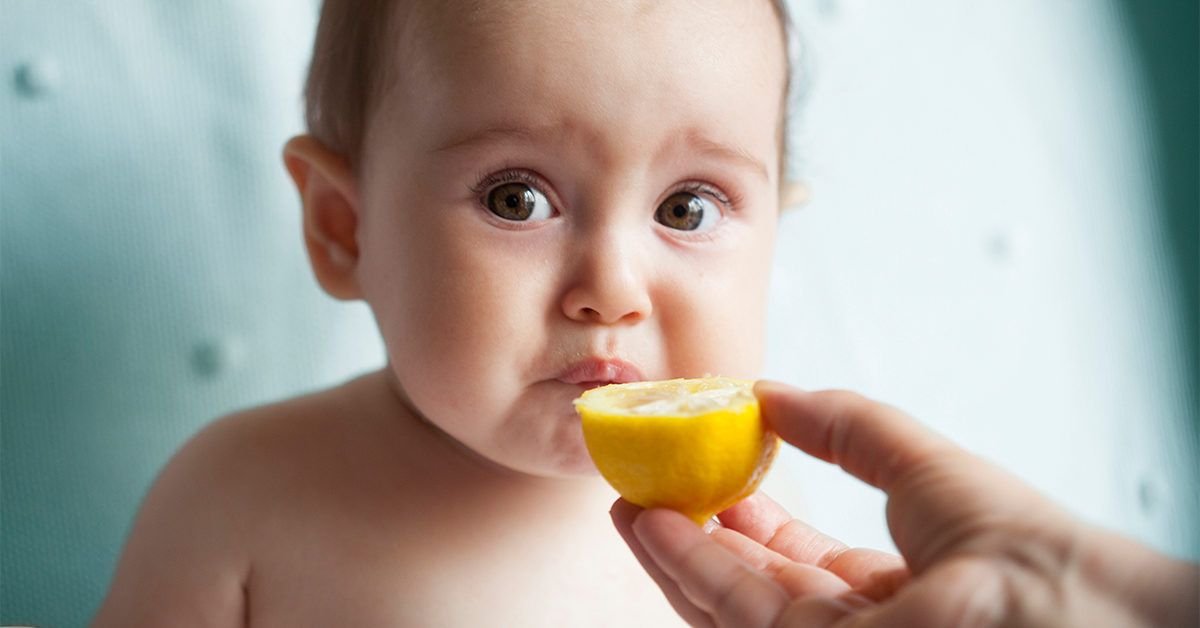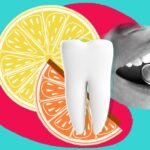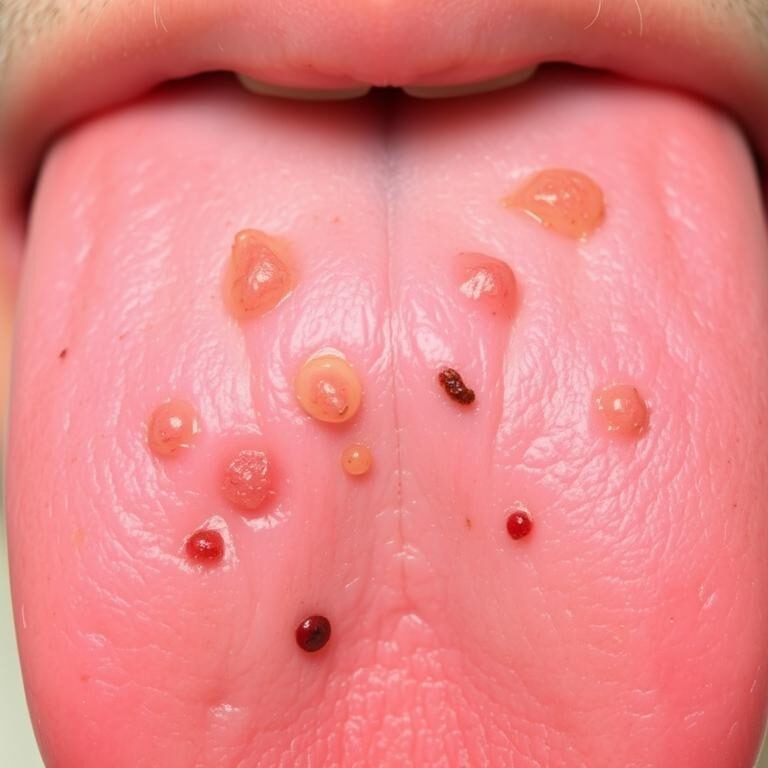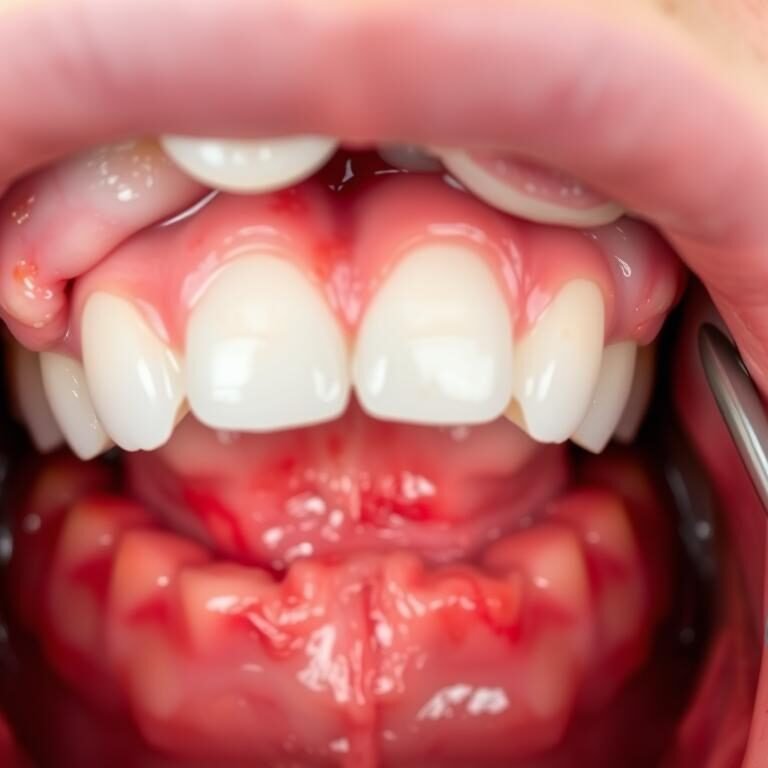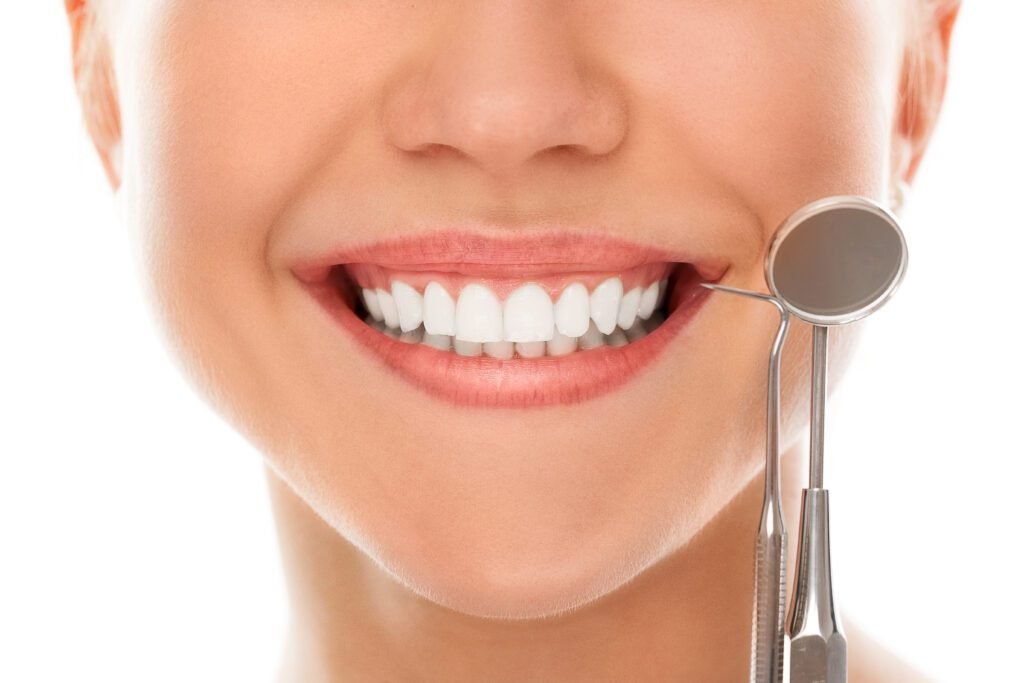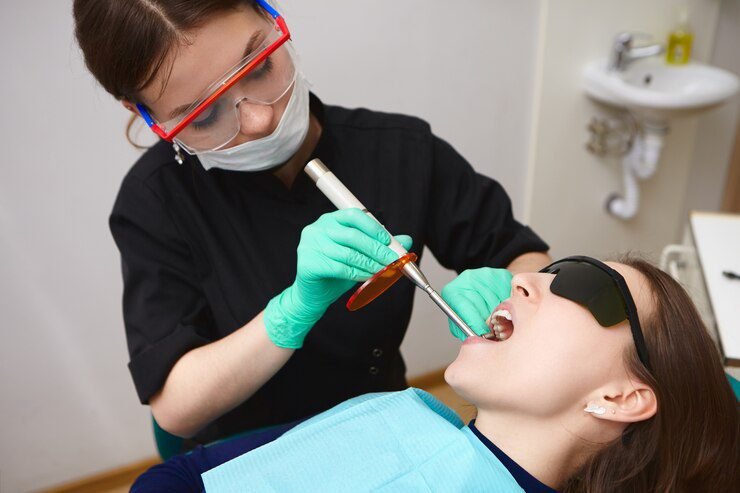Table of Contents
– How Fruit Juice Consumption Can Lead to Tooth Decay in Babies
Fruit juice is often a popular choice for parents looking to provide their babies with a nutritious and tasty beverage. However, it is important to be aware of the potential negative effects that excessive fruit juice consumption can have on the oral health of infants. One of the primary concerns is tooth decay, which can be caused by the high sugar content found in many fruit juices.
When babies consume fruit juice, the sugars in the juice interact with bacteria in the mouth, leading to the production of acids that attack the tooth enamel. Over time, this acid erosion can result in the development of cavities and tooth decay. In fact, research has shown that children who consume high amounts of fruit juice have a higher risk of dental caries compared to those who consume lower amounts or none at all.
Furthermore, it is important to note that fruit juice is often served in bottles or sippy cups, which can also contribute to tooth decay. When babies constantly sip on fruit juice throughout the day, their teeth are exposed to sugars and acids for prolonged periods, increasing the likelihood of tooth decay. To minimize this risk, it is recommended to limit the consumption of fruit juice to specific times of the day and encourage water intake in between. By doing so, parents can help ensure optimal oral health for their babies while still providing them with necessary hydration and nutrition.
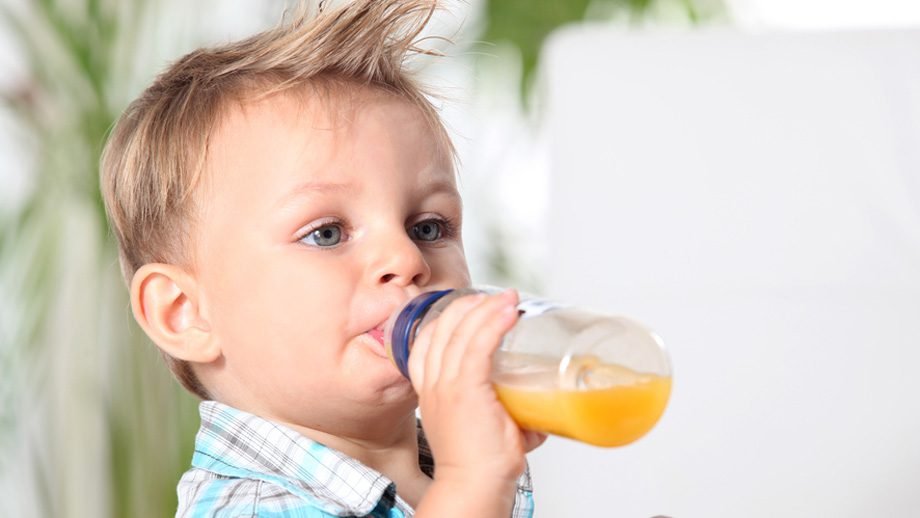
– Recognizing the Signs of Tooth Decay in Infants and Young Children
Tooth decay in infants and young children can have a significant impact on their oral health and overall well-being. It is crucial for parents and caregivers to be able to recognize the signs of tooth decay in order to take appropriate action and seek necessary dental care.
One of the most common signs of tooth decay in infants and young children is the appearance of white spots or discoloration on the teeth. This early stage of decay, known as dental demineralization, occurs when the tooth enamel begins to weaken due to acids produced by bacteria in the mouth. If left untreated, these white spots can progress to cavities and eventually cause pain or infection.
Another sign of tooth decay in young children is the presence of brown or black spots on the teeth. As the decay progresses, the affected areas may become more visible and may even develop into cavities. It is important to note that tooth decay can occur in baby teeth as well as permanent teeth, so it is essential to address any signs of decay in a timely manner to prevent further damage.
In addition to these visual indicators, parents should also be aware of other symptoms that may suggest tooth decay, such as sensitivity to hot or cold foods and drinks, pain or discomfort when chewing, and bad breath. If any of these signs are present, it is important to schedule a dental appointment for a thorough examination and appropriate treatment.
By being vigilant and knowledgeable about the signs of tooth decay in infants and young children, parents and caregivers can play a crucial role in maintaining their children’s oral health. Early detection and intervention are key to preventing further deterioration of teeth and ensuring a lifetime of healthy smiles.
Best Practices for Introducing Fruit Juice to Babies
Introducing fruit juice to babies is an important milestone in their transition to solid foods. However, it is crucial to follow best practices to ensure their oral health remains uncompromised. The American Academy of Pediatrics suggests that infants under the age of 1 should not consume fruit juice, as it offers little to no nutritional benefit and can contribute to tooth decay.
When introducing fruit juice to your baby, it is recommended to wait until they are at least 1 year old and have started consuming a variety of solid foods. Start with small amounts, such as 2-4 ounces per day, and gradually increase the quantity as they grow older. Remember, fruit juice should never replace breast milk or formula as the primary source of nutrition.
Additionally, it is important to choose 100% fruit juice without any added sugars or sweeteners. The natural sugars present in fruit juice can still contribute to tooth decay if consumed in excess. Diluting the juice with water can further reduce its sugar content and minimize the risk of dental issues. It is also advised to serve fruit juice in a cup rather than a bottle to discourage prolonged exposure of the teeth to the sugary liquid.
By following these best practices, you can introduce fruit juice to your baby in a manner that promotes their overall health while safeguarding their dental well-being. However, it is always recommended to consult with your pediatric dentist or healthcare provider for personalized advice tailored to your baby’s specific needs.
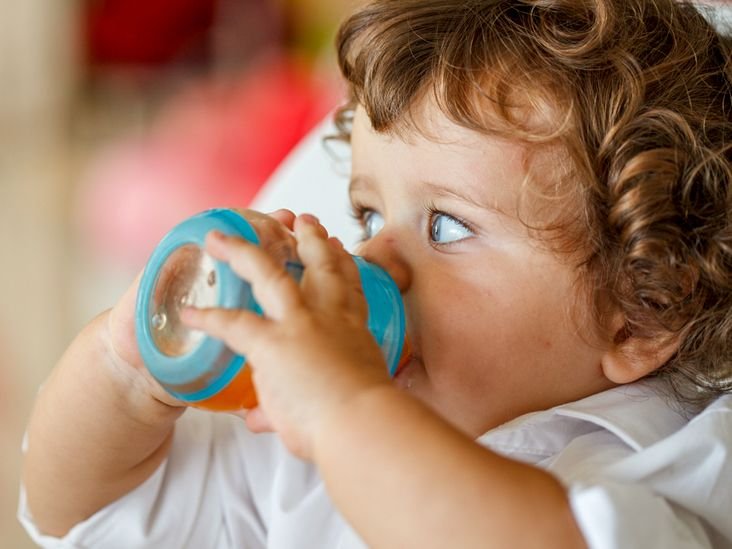
– When and How to Introduce Fruit Juice to Your Baby
Introducing fruit juice to your baby is an important step in their transition to solid foods. However, it is crucial to do so at the right time and in the right manner to ensure their oral health is not compromised. The American Academy of Pediatrics (AAP) recommends waiting until your baby is at least 12 months old before introducing fruit juice. This is because excessive consumption of fruit juice at a young age can lead to tooth decay due to its high sugar content.
When the time comes to introduce fruit juice, it is important to do it in a controlled and safe manner. Remember that water and breast milk/formula should still be the primary sources of hydration for your baby. Start by offering small amounts of diluted 100% fruit juice, preferably mixed with water in a ratio of 1:1. Gradually increase the concentration of juice as your baby grows older, but always ensure that it is still diluted to minimize the risk of tooth decay. Additionally, it is recommended to serve juice in a cup rather than a bottle, as bottle-feeding with juice can increase the exposure of teeth to sugar and lead to dental issues.
As a parent, it is crucial to be mindful of the quantity and frequency of fruit juice consumption. Limit intake to 4 ounces per day for toddlers aged 1-3 years and 6 ounces per day for children aged 4-6 years, as recommended by the AAP. It is also advisable to offer juice only during meal times and to avoid prolonged sipping or using juice as a pacifier. By following these guidelines, you can ensure that your baby enjoys the benefits of fruit juice without compromising their oral health.
– Recommended Fruit Juice Portions for Infants and Toddlers
When it comes to fruit juice consumption for infants and toddlers, it is important to closely monitor the portions to ensure their overall health and well-being. The American Academy of Pediatrics (AAP) recommends limiting fruit juice intake for infants up to 1 year old. It is advised to completely avoid fruit juice for babies under 6 months of age, as they should be exclusively breastfed or formula-fed.
For infants aged 6 months to 1 year, the recommended fruit juice portion is no more than 4 ounces per day. It is important to note that this should be 100% pure fruit juice and not fruit drinks or flavored drinks that are often high in added sugars. Introducing small amounts of diluted fruit juice can be done gradually, but it’s crucial to monitor for any signs of tooth decay and limit overall intake to promote healthy oral development.
As toddlers transition from breast milk or formula to a more varied diet, the AAP suggests limiting fruit juice intake to a maximum of 4-6 ounces per day for children between 1 and 6 years old. It is important to remember that excessive consumption of fruit juice can lead to tooth decay, as it contains natural sugars and acids that can erode tooth enamel. With this in mind, it is recommended to offer water as the primary source of hydration and only provide fruit juice as an occasional treat.

– Diluting Fruit Juice to Reduce Sugar and Acidic Content
Diluting fruit juice can be a helpful strategy to reduce the sugar and acidic content for babies. By diluting fruit juice with water, you can lower the overall sugar concentration and minimize the risk of tooth decay. It is recommended to dilute the juice in a ratio of 1 part juice to 1 part water for infants and 1 part juice to 2 parts water for toddlers.
When diluting fruit juice, it is important to use filtered or bottled water to ensure that there are no additional contaminants present. It is also advisable to prepare the diluted juice fresh each time, rather than storing it for prolonged periods, as this can lead to bacterial growth. By diluting fruit juice, you can still offer your baby a tasty beverage while minimizing the negative impacts on their oral health.
– Alternatives to Fruit Juice for Hydration and Nutrition
When it comes to hydration and nutrition for infants and young children, there are a variety of alternatives to fruit juice that can provide essential nutrients while being gentle on their developing teeth. One option is to incorporate fresh water into their daily routine. Water not only keeps them hydrated but also helps to rinse away harmful bacteria in their mouths. Another alternative is offering breast milk or formula as it provides the necessary nutrients for their growth and development. These options are particularly beneficial for babies under the age of one, as their developing teeth are more susceptible to the harmful effects of fruit juice.
Introducing solid foods is another way to provide hydration and nutrition while minimizing the risk of tooth decay. Pureed fruits, such as mashed bananas or avocados, can be an excellent choice as they offer vitamins and minerals without the high sugar content found in juice. Vegetables like steamed carrots or sweet potatoes can also be pureed and offered as a nutritious alternative. By introducing a variety of fruits and vegetables, parents can ensure their child is getting a well-rounded diet that promotes overall health and dental well-being.
| Alternatives | Description |
|---|---|
| Water | Pure hydration without added sugars or flavors. |
| Coconut water | Contains electrolytes and natural sweetness. |
| Milk (cow’s milk, almond milk, soy milk, etc.) | Provides calcium and protein. Ensure suitability based on dietary restrictions and allergies. |
| Herbal teas (caffeine-free) | Some herbal teas can be hydrating and offer mild flavors. |
| Vegetable juices | Carrot, spinach, or mixed vegetable juices offer nutrients without excessive sugar. |
| Smoothies | Blended mixtures of fruits, vegetables, and yogurt or milk for added nutrition. |
| Diluted fruit juice | If fruit juice is a must, dilute it with water to reduce sugar content. |
Choosing the Right Fruit Juice for Your Baby
Choosing the right fruit juice for your baby is an important consideration when introducing this beverage to their diet. As a dentist with expertise in pediatric dentistry, I understand the impact that fruit juice can have on your child’s oral health. It is crucial to select a fruit juice that is low in sugar and acidic content to minimize the risk of tooth decay.
When looking for the most suitable fruit juice for your baby, opt for 100% fruit juice without added sugars or artificial sweeteners. These additives can greatly increase the sugar content and pose a higher risk of tooth decay. Additionally, choose juices that are fortified with Vitamin C and other nutrients that are beneficial for your baby’s overall health.
An important factor to consider is the type of fruit juice you are offering to your little one. Citrus fruits, such as oranges and grapefruit, are highly acidic and can erode tooth enamel. It is better to choose juices made from less acidic fruits like apples or pears. Offering diluted fruit juice is also a good practice, as it reduces the sugar and acidic content while still providing a flavorful option for your baby.
By selecting the right fruit juice for your baby, you can promote their oral health while still offering them a tasty and nutritious beverage. Remember to consult with your pediatrician or dentist for further guidance on fruit juice consumption and its impact on your baby’s dental health.
– Understanding Different Types of Fruit Juice and Their Nutritional Value
There are various types of fruit juice available in the market, each with its own unique nutritional profile. It is important to understand these differences in order to make informed choices for your baby’s oral and overall health.
One common type of fruit juice is orange juice. Orange juice is a good source of vitamin C, which helps in the growth and repair of tissues. It also provides essential minerals such as potassium and folate. However, orange juice can be high in natural sugars and acidic content, which can increase the risk of tooth decay if consumed in excess. It is advisable to limit the intake of orange juice and offer it in diluted form to reduce the sugar and acidic levels.
Another popular fruit juice is apple juice. Apple juice contains antioxidants and dietary fiber, which are beneficial for overall health. It also has a lower acidic content compared to other fruit juices, making it a better choice for dental health. However, it is important to note that even though apple juice may seem healthier, it still contains natural sugars and should be consumed in moderation.
Grape juice is another option that is often enjoyed by children. It contains vitamins A and C, as well as polyphenols, which are beneficial for the body. However, like other fruit juices, grape juice is high in sugar, which can lead to tooth decay if consumed excessively. It is recommended to offer grape juice in limited quantities and to dilute it with water to reduce the sugar and acidic content.
In conclusion, understanding the different types of fruit juice and their nutritional value is crucial in making healthy choices for your baby. While fruit juices can provide certain nutrients, they should be consumed in moderation and be offered in diluted form to minimize the risk of tooth decay. It is always recommended to consult with a pediatric dentist or healthcare professional for personalized advice based on your baby’s specific needs.
| Fruit Juice Type | Calories (per 8 oz) | Carbohydrates (g) | Sugars (g) | Vitamin C (mg) | Other Nutrients |
|---|---|---|---|---|---|
| Apple Juice | 120 | 28 | 24 | 2 | Calcium, Potassium |
| Orange Juice | 110 | 26 | 22 | 124 | Vitamin A, Calcium |
| Grape Juice | 160 | 38 | 36 | 4 | Vitamin K, Folate |
| Cranberry Juice | 140 | 35 | 30 | 26 | Vitamin E, Antioxidants |
| Pineapple Juice | 130 | 33 | 25 | 25 | Magnesium, Bromelain |
– Reading and Decoding Product Labels to Make Informed Choices
When it comes to choosing the right fruit juice for your baby, reading and decoding product labels is essential in making informed choices. Product labels provide valuable information about the nutritional content, ingredients, and potential additives in the fruit juice. By understanding how to interpret these labels, you can make the best decision for your baby’s oral health.
One important aspect to consider is the sugar content. Excessive sugar intake can contribute to tooth decay in infants and young children. Look for fruit juices labeled as “no added sugars” or “unsweetened,” as these options are generally lower in sugar. It’s also important to be aware of fruit juice concentrates, which can have high sugar content. Pay attention to the overall sugar content per serving and keep in mind that natural fruit sugars are still sugars and can affect your baby’s teeth.
Another factor to consider is the acidity of the fruit juice. Acidic beverages can erode tooth enamel and increase the risk of tooth decay. Check the product labels for information on the pH level or acidity of the juice. It’s generally recommended to choose fruit juices with lower acidity levels to minimize potential harm to your baby’s teeth.
By carefully reading and decoding product labels, you can make informed choices about the fruit juice you introduce to your baby. Consider the sugar content, acidity, and any potential additives to ensure you are selecting a juice that promotes optimal oral health.
– Identifying Fruit Juice Brands with Low Sugar and Acid Levels
When it comes to choosing fruit juice brands for your baby, it is important to select options with low sugar and acid levels. High sugar content can contribute to tooth decay and cavities, while acidic juices can erode tooth enamel over time. To safeguard your little one’s oral health, it’s crucial to identify brands that prioritize low sugar and acid content.
One of the key factors to consider when selecting fruit juice brands is the sugar content. Many brands offer 100% fruit juice options, which can be a healthier choice compared to juice drinks or fruit juice cocktails that contain added sugars. However, even 100% fruit juices can still have varying levels of sugar. It is recommended to choose brands that offer juices with no added sugars and no more than 4-6 grams of naturally occurring sugars per serving.
In addition to sugar, the acid content of fruit juices should be taken into account. Acidic juices can wear away the protective layer of tooth enamel, making teeth more susceptible to decay. Some fruits naturally contain higher levels of acid, such as citrus fruits. When selecting fruit juice brands, look for options that are less acidic or have lower pH levels. This information is usually provided on the product label or can be found by contacting the manufacturer. By choosing brands with low sugar and acid levels, you can promote better oral health for your baby.
– Homemade Fruit Juice Options for Optimal Oral Health
One of the best ways to ensure optimal oral health for your baby is by preparing homemade fruit juices. By making your own fruit juices, you have better control over the ingredients and can minimize the risks of tooth decay. When making homemade fruit juices, start by selecting fruits that are low in sugar and acidic content. Options such as apples, pears, and melons are great choices, as they have a lower risk of causing dental issues in babies.
When preparing the fruit juices, make sure to extract the juice without adding any additional sugar or sweeteners. This will help minimize the overall sugar content, reducing the risk of tooth decay. Additionally, consider diluting the juice with water to further reduce the sugar and acidic levels. By doing so, you can create a refreshing and nutritious drink for your baby while minimizing the potential harm to their teeth.
Homemade fruit juices provide a great opportunity to introduce your baby to a variety of flavors and nutrients. However, it’s important to remember that even homemade fruit juices should be consumed in moderation. Excessive consumption of fruit juices, even those made at home, can still pose a risk to your baby’s oral health. As a general rule, limit the intake of fruit juice to specific times of the day, preferably during mealtime. This not only helps with portion control but also reduces the exposure of your baby’s teeth to the sugar and acids present in the juice.
Establishing Healthy Habits and Routines
Establishing healthy habits and routines is crucial for maintaining optimal oral health in babies and young children. By implementing good dental hygiene practices from an early age, parents can help prevent tooth decay and promote strong teeth and gums.
One important aspect of establishing healthy habits is teaching proper dental hygiene to your baby. As soon as their first tooth appears, it’s recommended to gently brush it with a small, soft toothbrush and a smear of fluoride toothpaste. Parents should aim to brush their baby’s teeth twice a day, making sure to clean all surfaces, including the front and back of the teeth.
In addition to daily brushing, limiting fruit juice consumption to specific times of the day is another important habit to develop. While fruit juice can be a part of a balanced diet, excessive consumption can lead to tooth decay due to its high sugar and acidic content. It’s best to offer fruit juice in a cup rather than a bottle, and avoid prolonged exposure by not allowing your baby to sip on juice throughout the day. Instead, encourage water intake as the primary source of hydration.
By instilling these habits and routines early on, parents can play a crucial role in promoting their baby’s oral health and preventing tooth decay. Regular dental check-ups, along with proper dental hygiene practices, will set the foundation for a lifetime of good oral health.
– Teaching Proper Dental Hygiene to Your Baby from an Early Age
Proper dental hygiene is crucial for maintaining your baby’s oral health and preventing tooth decay. Starting good oral care habits from an early age can set the foundation for a lifetime of healthy teeth and gums. As a parent, it is your responsibility to teach your baby the importance of dental hygiene and help them establish a routine that includes brushing and flossing.
One of the first steps in teaching proper dental hygiene to your baby is to introduce them to a toothbrush as soon as their first tooth erupts. Use a soft-bristled toothbrush specifically designed for infants and a tiny smear of toothpaste containing fluoride, which helps strengthen the tooth enamel. Gently brush your baby’s teeth twice a day, making sure to reach all surfaces, including the front, back, and top of the teeth. This not only removes plaque and food particles but also helps your baby become accustomed to the sensation of brushing. It is recommended to brush your baby’s teeth until they have the manual dexterity to do it themselves, usually around the age of 6 or 7.
– Limiting Fruit Juice Consumption to Specific Times of the Day
It is important to limit the consumption of fruit juice to specific times of the day in order to minimize the risk of tooth decay in babies and young children. This is because continuous exposure to the sugars and acids found in fruit juice can erode tooth enamel and lead to cavities. By restricting fruit juice intake to specific times, such as during meals, you can help protect your child’s dental health.
The American Academy of Pediatrics recommends that infants under the age of 1 year should not consume any fruit juice. After the age of 1, fruit juice can be introduced, but only in limited amounts. It is advised to offer no more than 4 ounces of 100% fruit juice to toddlers aged 1-3 years, and no more than 4-6 ounces to children aged 4-6 years. By limiting the quantity of fruit juice consumed, you can help reduce the amount of sugar and acid exposure on your child’s teeth, ultimately minimizing the risk of tooth decay.
Furthermore, it is crucial to avoid allowing your child to consume fruit juice from sippy cups or bottles, as this can prolong exposure to sugars and increase the likelihood of tooth decay. Encouraging the use of regular cups can help promote better drinking habits and prevent excessive juice consumption. Additionally, it is essential to remember that fruit juice should never be used as a substitute for water or milk, as these are the best choices for hydration and overall health.
By adhering to these guidelines and restricting fruit juice consumption to specific times of the day, you can help protect your child’s teeth from the harmful effects of sugar and acid. Establishing healthy drinking habits from an early age will contribute to their long-term oral health and well-being.
– Encouraging Water Intake and Regular Brushing
Encouraging Water Intake and Regular Brushing is key to maintaining optimal oral health in babies and young children. Water not only helps to hydrate the body, but it also plays a crucial role in promoting saliva production. Saliva is nature’s defense against tooth decay as it helps to rinse away leftover food particles and neutralize harmful acids in the mouth. Therefore, it is important to actively encourage your child to drink water throughout the day, especially after consuming fruit juice or other sugary drinks.
Regular brushing is equally essential in preventing tooth decay. As soon as your baby’s first tooth erupts, it is recommended to start brushing it twice a day using an appropriately sized toothbrush and a smear of fluoride toothpaste. As your child grows, you can increase the amount of toothpaste to a pea-sized dollop. Teaching your child proper brushing techniques and ensuring they brush for two minutes each time will help remove plaque and maintain healthy gums.
By instilling good habits of water intake and regular brushing from an early age, you can lay the foundation for a lifetime of good oral health. Remember, leading by example by practicing these habits yourself can further encourage your child to make them part of their daily routine.
Can fruit juice consumption lead to tooth decay in babies?
Yes, fruit juice consumption can lead to tooth decay in babies due to its high sugar and acidic content.
What are the signs of tooth decay in infants and young children?
Signs of tooth decay in infants and young children include discoloration of the teeth, toothache or pain, sensitivity to hot or cold temperatures, and visible pits or holes in the teeth.
When should I introduce fruit juice to my baby?
It is recommended to introduce fruit juice to your baby after they have reached 1 year of age.
How should I introduce fruit juice to my baby?
Fruit juice should be introduced to your baby by using a cup instead of a bottle and offering it during meal times to minimize the risk of tooth decay.
How much fruit juice should I give to my infant or toddler?
The recommended portion of fruit juice for infants and toddlers is no more than 4 ounces per day.
Can I dilute fruit juice to reduce its sugar and acidic content?
Yes, you can dilute fruit juice with water to reduce its sugar and acidic content. It is recommended to dilute it with an equal amount of water.
What are some alternatives to fruit juice for hydration and nutrition?
Some alternatives to fruit juice for hydration and nutrition include breast milk, formula, plain water, and mashed fruits or vegetables.
How can I choose the right fruit juice for my baby?
You can choose the right fruit juice for your baby by reading and decoding product labels to check for low sugar and acidic levels. Look for juices that are 100% fruit juice without added sugars.
Are homemade fruit juices better for oral health?
Homemade fruit juices can be better for oral health if they are made without added sugars and are consumed in moderation.
How can I establish healthy habits and routines for my baby’s oral health?
You can establish healthy habits and routines for your baby’s oral health by teaching proper dental hygiene from an early age, limiting fruit juice consumption to specific times of the day, and encouraging water intake and regular brushing.

